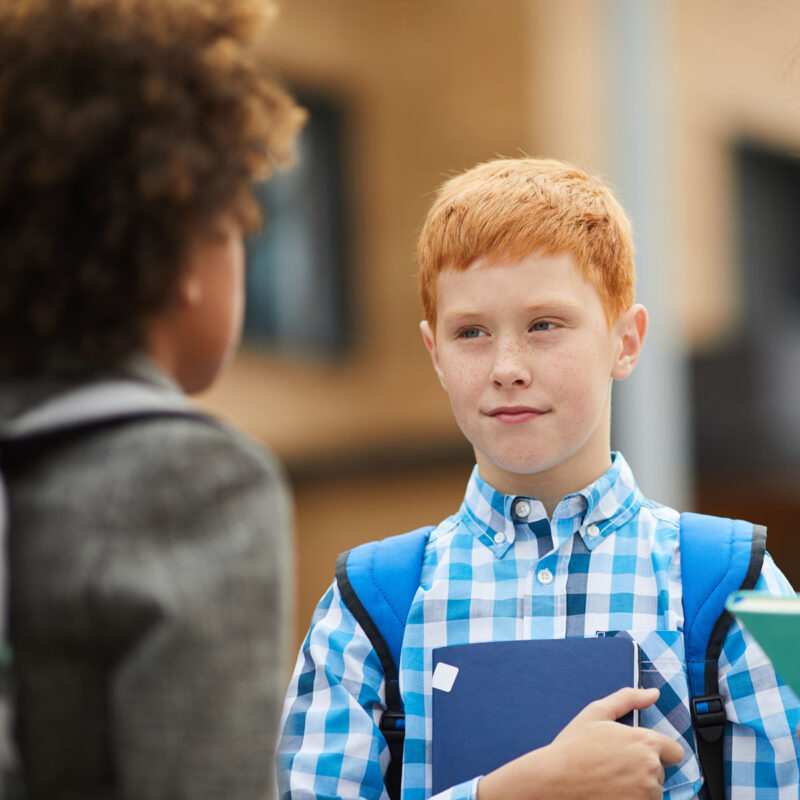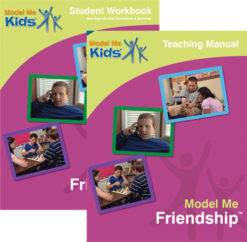Model Me Friendsip™
Autism Friendship
Model Me Friendship™ presents key social skills for developing and maintaining appropriate friendships
Elementary, Middle School, High School
Run Time: Approx. 75 Minutes
Watch Preview
Model Me Friendship™
Topics
Greeting
Clubs
Empathy
Interests
Team Sports
Rejection
Include Others
Invite
Show Interest
Compromise
Maintain Friendship
Body Language
Manual & Workbook
The teaching manual and student workbook for this video promote learning through adaptable lesson plans paired with visual exercises. These resources support skill acquisition in the classroom, at home, and in the community.

About the Video
The Model Me Friendship™ video presents skills needed to develop and maintain friendship. It features teen-aged children demonstrating appropriate social skills at school, playing on sports teams, eating at a restaurant, and in other settings. Each scene lasts between 30 seconds and 3 minutes, depending on the chapter. At the end of each chapter is a storyboard summarizing the rules taught.
The video is hosted by the children in the video, who narrate each scene. The visual is combined with narration and graphics that help explain the particular rule. Each social skill is demonstrated in more than one situation and across environments. This is useful to children with Autism because it helps with generalization of the skill taught.
Graphics and music are used to make the video appealing to children with Autism friendship goals.
Shop
